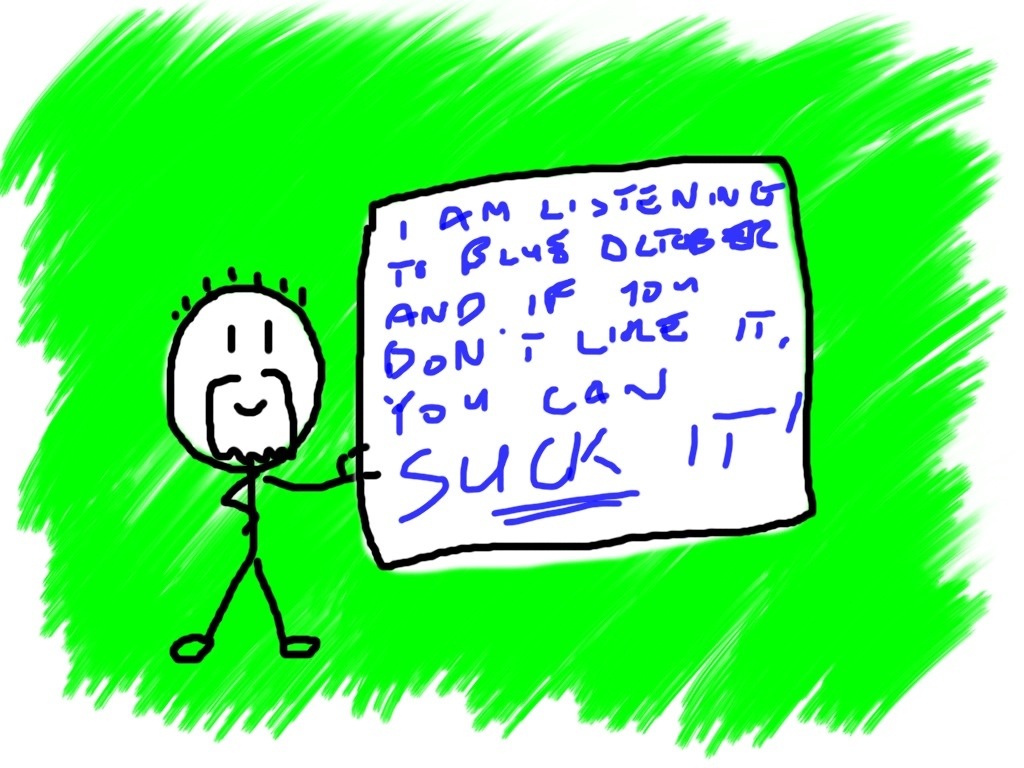In a recent blog post, one Ben Goldacre described Spotify’s auto-sharing behaviour as “creepy” and called for greater transparency in opt-out procedures. While I don’t disagree that users should have the option of whether or not to share what it is that they’re doing, I do disagree with the good Doctor’s assertion that showing off your tastes to others is somehow “creepy” or “wrong”.
The reason I don’t find it either of those things is because of discovery. Spotify is built in such a manner that it’s easy to check out an artist or album you’re unfamiliar with in a risk-free environment. You don’t drop any money on the album directly, so if you wind up hating it, you haven’t lost out. And if you end up loving it, you can whack it in a playlist or star it for future reference.
Combine this ease of trying things outside of your usual comfort zone with social features and you get a powerful tool to expand your own tastes. Because music is an ever-present part of society these days — silence, it seems, is frowned upon by most people, particularly those of more tender years — conversations about what artists are awesome are less common than they once were in the age of buying CDs (and, heaven forbid, cassettes). Music is just there for many people — a disposable thing that people may well have a strong connection to but perhaps don’t always think to actually discuss,
What Spotify’s sharing feature does is allow you to see what friends have been listening to and, if it takes your fancy, jump right in there and have a listen yourself. I’ve discovered more than a few new favourites this way, and I’m certain other people will have been curious about some of my tastes too. I don’t have any objection to people seeing what I’ve been listening to and I’m certainly not ashamed of it. The same is true for Netflix, newly launched in the UK and nicely integrated with Facebook to allow you to share what you’re watching. On the whole, I’m much more inclined to pay attention to new releases if my friends are enjoying them rather than if they’re simply “critically acclaimed”. See: The Squadron of Shame
Goldacre suggests that people will make judgements based on what you have been listening to, and your playlists which, if you weren’t already aware, are made public by default. And perhaps people will — but the attitude I have always taken with personal taste is that it is just that: personal. If you’re the sort of person who ridicules someone else just because of what music they listen to, how they dress, or their appearance… I probably don’t really want to know you. Everyone is free to make their own choices with regard to what entertains them (unless, you know, if you’re into something fucked up and illegal) and so people should not feel ashamed or embarrassed to share what it is that they have been enjoying.
In fairness, it’s entirely possible that there is the scope for cyber-bullying among schoolkids based on what they might have been listening to with Spotify, or the content of their playlists. But there’s the scope for cyber-bullying based on their photos, their status updates, all the other stuff that’s on Facebook, too. This isn’t excusing it. However, it does mean that Spotify itself isn’t some sort of creepy bully-magnet. As with all forms of social media and teens interacting with others on the Web, it’s important for parents to be involved and aware of what their offspring are up to. If it looks like causing a problem, they should be familiar with the options that are there to protect people — and Spotify has those options if, for whatever reason, sharing things does become a problem. But someone’s listening habits are public by default — and why shouldn’t they be? There’s nothing to be ashamed of there.
Perhaps I have a naïve view of social media and sharing information on the Web. But I just don’t see how sharing your entertainment consumption is particularly harmful. Sharing deeply personal information, yes. But the fact that you listened to the Lazy Town soundtrack today? For me, that’s the start of an interesting conversation, not something creepy.
